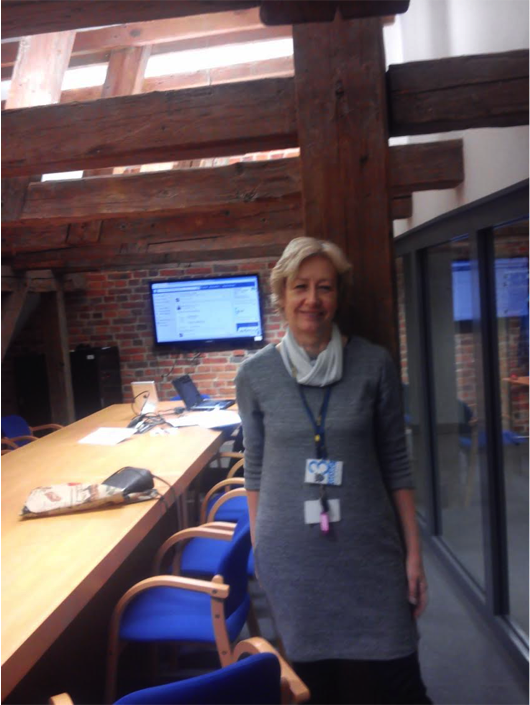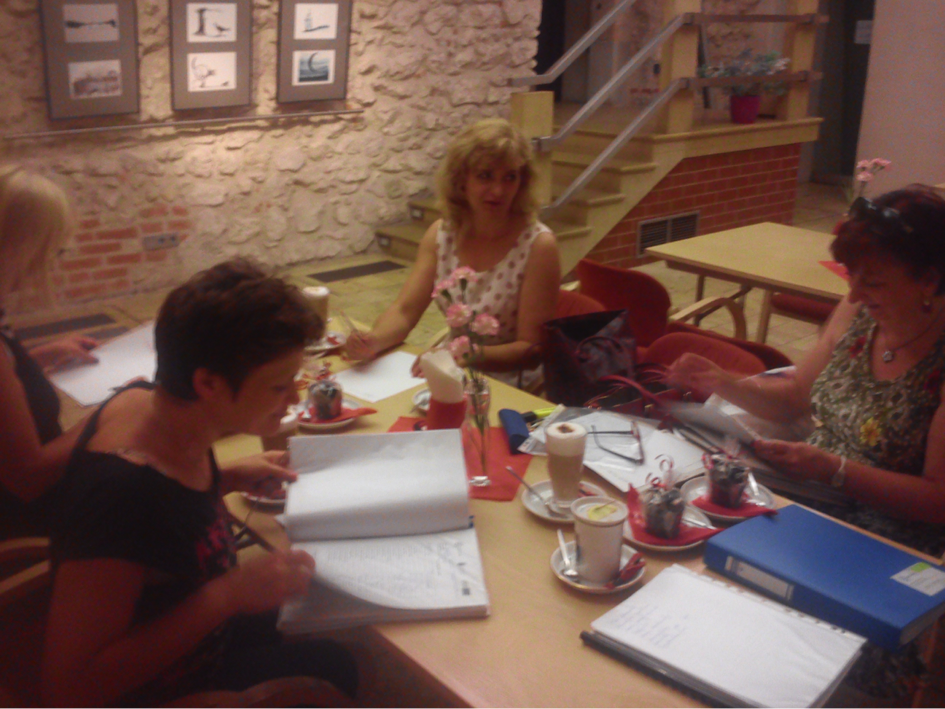Six teachers from Krakow, Czernichów, Bielsko-Biała and Ostrowiec Świętokrzyski participated in the activities of the first phase Community of Learners in Poland.
When in September 2016 the new teachers eager to participate in the project took part in a few days’ training – the project autumn school, the CoL1 members participated joined in and began to get acquainted with and lead their small teams: as tutors, they organized and managed their work during laboratory classes and workshops. On the last day of the autumn school, some time was especially dedicated to the organization of the future work of CoL2 small groups. Each tutor was assigned one of the other members of CoL1 – members of the teaching staff of the JU Department of Chemical Education or the University Museum – for help. The tutors and advisors/supervisors continued to cooperate within the CoL1 group on Facebook, posting there the newly found content, links, applications concerning nanotechnology and RRI, important organizational information, examples of the dissemination of the project activities, reviews of each other’s ideas, generated documents, e.g. evaluation surveys of exhibit and whole exhibitions, questions from their teachers from the small CoL2 groups and vice versa.

Below an account of the work of CoL2 by one of the tutors is presented.
“I met the group of teachers that I was to cooperate with during the Autumn School in September 2015. The group was composed of three teachers working in lower secondary schools in towns near Krakow, and two teachers from upper secondary schools from Krakow. Three of them were chemistry teachers; one was a teacher in physics and mathematics, and one in biology. Then, my meetings with the group were held regularly every month. They were always participated by our supervisor, M. Kluza, PhD, from the Jagiellonian University Museum. Already at the first meeting, it turned out that none of the teachers used social networking sites on the Internet, while the implementation of the project required the use of Web2.0 tools, for example the cooperation within a closed group on Facebook. The project participants were gradually getting acquainted with FB, and they also established FB groups for their students, although even today it still happens that they do not read sometimes the information published on FB and they do not post photos and other materials very often.

During the group meetings, I discussed the issues related to the implementation of the module selected by our group; we also discussed the ways to adapt some of the issues originally designed for upper secondary school students to use them on the lower secondary level. I also brought up the issue of managing the allocated budget and the method of settlement, as well as the project implementation schedule followed by the teachers and the preparation of exhibits. For each meeting, the teachers prepared reports on the activities carried out during the past month; they also presented some of their students’ works and ideas. The teachers were eager to discuss the issues of motivating students to work and problems related to the implementation of the module. Not everything went smoothly – the very busy teachers sometimes had problems with adherence to deadlines in the implementation of particular activities. The fact that I live 180 km away from Krakow where the meetings were held also hindered the work of our group; unfortunately, we did not find an adequate number of teachers willing to cooperate in the project in the area I live. Initially, the teachers did not believe in the success of our actions – the organization of the final school exhibition. Gradually, they became more and more involved, which also translated into the increased interest and commitment of their students”.








